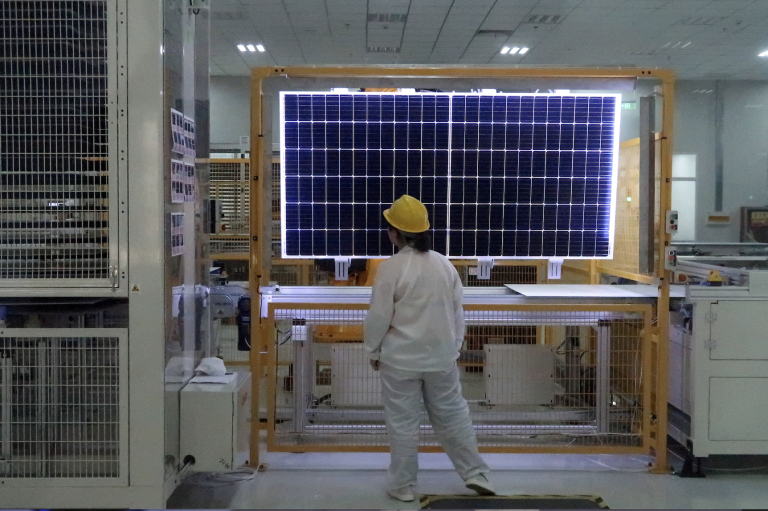BEIJING – Chinese solar panel maker LONGi Green Energy Technology Co. Ltd said on Monday it will provide evidence to show it is complying with U.S. laws after the U.S. Department of Commerce found it to be circumventing tariffs.
The United States will impose new duties on imports from LONGi and three other Chinese solar panel makers, trade officials said on Friday, after an investigation found in a preliminary determination issued last week they were trying to dodge tariffs by finishing products in Southeast Asian countries.
“Next, the U.S. Department of Commerce will conduct on-site audit in the next few months to verify the authenticity of the investigation information. During this period, we will actively provide evidence that shows we are compliant with U.S. trade law and not circumventing,” LONGi said in a statement sent to Reuters.
BYD Co Ltd, Trina Solar Co Ltd, and Canadian Solar Inc, also named in the preliminary determination, did not immediately respond to requests for comment.
If finalized next year, the U.S. determination means the Chinese companies will be subject to duties on the products they make in Malaysia, Cambodia, Thailand, and Vietnam.
Success
You are now signed up for our newsletter
Success
Check your email to complete sign up
The duties will not come into force until June 2024, thanks to a two-year waiver introduced by U.S. President Joe Biden this year.
LONGi said it was working on increasing the strategic layout of its global operations, including improving its manufacturing and supply chain for the U.S. market.
“No matter what the final result is, it will not affect the company’s medium- and long-term planning in the U.S. market,” it said.
Reporting by Xu Kaiwen and Dominique Patton; Editing by Robert Birsel













